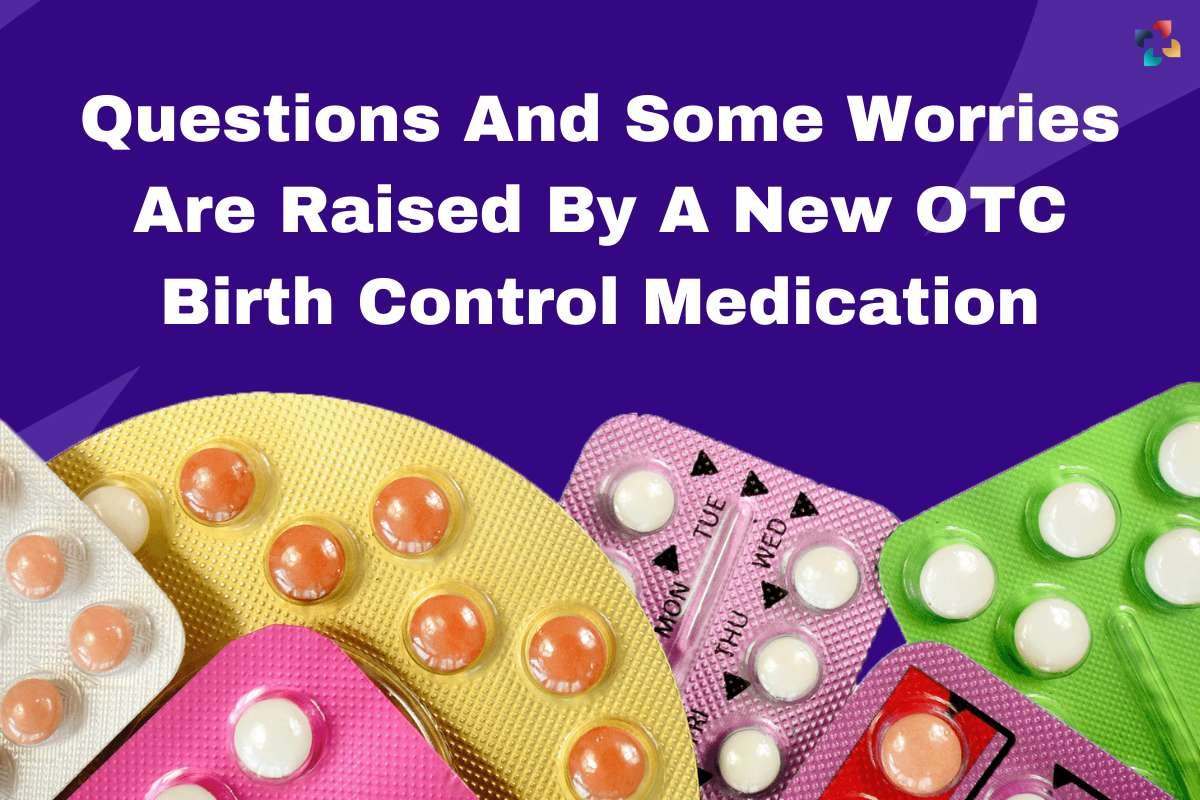The Post-Roe Landscape: Examining The Implications Of OTC Birth Control

Table of Contents
Increased Access and Reduced Barriers to Contraception
Increased access to birth control is a crucial component of reproductive healthcare. Making birth control available over-the-counter (OTC) could revolutionize access for many, particularly those currently facing significant barriers.
Improved Accessibility for Underserved Populations
OTC birth control could significantly improve access for individuals in rural areas, low-income communities, and those lacking health insurance. These populations often face disproportionately high rates of unintended pregnancies due to limited access to healthcare services.
- Reduced transportation costs: Eliminating the need to travel to a clinic saves time and money, a significant factor for those in rural areas or with limited transportation options.
- Elimination of appointment scheduling: The convenience of purchasing OTC birth control removes the hurdle of scheduling appointments, which can be challenging for individuals with busy schedules or inflexible work arrangements.
- Easier access for those facing stigma or discrimination: The anonymity afforded by OTC purchases can be crucial for individuals who fear judgment or discrimination based on their sexual orientation, gender identity, or other personal circumstances.
Studies have consistently shown disparities in contraceptive access among different demographics. For example, research indicates that women of color and low-income women are significantly less likely to have access to the full range of contraceptive options. OTC birth control has the potential to mitigate these disparities by providing a more equitable and accessible method of family planning.
Enhanced Privacy and Confidentiality
Purchasing birth control OTC allows for greater privacy and avoids potentially uncomfortable interactions with healthcare providers. For many, discussing personal reproductive health choices can be a sensitive and anxiety-inducing experience.
- Anonymity in purchasing: The ability to purchase birth control discreetly and without revealing personal information to a healthcare provider can be empowering and liberating.
- Avoidance of judgment or questioning: OTC access eliminates the possibility of facing judgment or intrusive questioning from healthcare professionals, fostering a more comfortable and respectful experience.
The psychological impact of seeking reproductive healthcare should not be underestimated. The stress and discomfort associated with navigating the healthcare system can be a major barrier to accessing essential services. OTC birth control offers a solution that prioritizes privacy and individual autonomy.
Potential Challenges and Concerns of OTC Birth Control
While the benefits of OTC birth control are substantial, it's crucial to acknowledge and address potential challenges.
Misinformation and Lack of Education
Increased access necessitates robust public health campaigns to ensure proper usage and understanding of different contraceptive methods. Misinformation and lack of education can lead to ineffective use, increased risk of pregnancy, and potential health complications.
- Risk of incorrect usage: Improper use of birth control can significantly reduce its effectiveness, leading to unintended pregnancies.
- Potential for side effects: All contraceptive methods have potential side effects, and individuals need to be aware of these risks and know when to seek medical advice.
- Importance of seeking medical advice for certain conditions: Some individuals may have underlying health conditions that necessitate consultation with a healthcare provider before using certain contraceptive methods.
Comprehensive sex education is essential to ensure individuals are equipped with the knowledge and skills to make informed choices about their reproductive health. Readily accessible information resources, including online platforms and community-based programs, can play a vital role in bridging the information gap.
Regulatory and Safety Considerations
The FDA’s role in ensuring the safety and efficacy of OTC birth control methods is paramount. Clear labeling, instructions, and appropriate age restrictions are critical to minimize risks.
- FDA approval process: The FDA's rigorous approval process for OTC drugs must be applied consistently to ensure the safety and effectiveness of all contraceptive options.
- Potential for drug interactions: Individuals taking other medications need to be aware of potential interactions with various birth control methods.
- Appropriate age restrictions: Age-appropriate access and education are vital to ensure responsible use and minimize potential risks for younger individuals.
Analyzing current FDA regulations regarding OTC drugs and their application to contraception is crucial to ensure that the transition to OTC access is smooth, safe, and effective.
Cost and Affordability Concerns
While OTC access removes some barriers, the cost of birth control itself could still be prohibitive for some individuals. Affordability remains a significant concern that must be addressed.
- Insurance coverage: Ensuring comprehensive insurance coverage for OTC birth control is essential to make it accessible to a broader population.
- Potential for government subsidies: Government subsidies could help reduce the financial burden on low-income individuals.
- Impact on low-income individuals: Strategies to mitigate the cost of OTC birth control for low-income individuals are necessary to prevent increased inequities in access.
The potential for increased costs due to market forces underscores the need for government intervention to ensure affordability and equitable access for all.
The Impact on Public Health Outcomes
Increased access to OTC birth control could have a significant impact on several key public health outcomes.
Reduction in Unintended Pregnancies
Easier access to birth control has the potential to significantly reduce rates of unintended pregnancies and abortions.
- Improved family planning: Access to affordable and convenient contraception empowers individuals to make informed decisions about family planning.
- Positive impact on maternal health: Reducing unintended pregnancies leads to better maternal health outcomes and improved child well-being.
Numerous studies have demonstrated a strong correlation between increased contraceptive access and reduced rates of unintended pregnancies. Making birth control readily available through OTC access could significantly impact these statistics.
Potential Impact on STI Rates
It's crucial to acknowledge that increased access to contraception must be coupled with comprehensive sexual health education to mitigate the spread of STIs.
- Importance of safe sex practices: Promoting safe sex practices alongside access to contraception is vital in reducing STI transmission.
- Need for integrated sexual health services: Integrated sexual health services that provide both contraception and STI testing and treatment are crucial for comprehensive sexual health care.
Ignoring the relationship between contraceptive access and STI prevention would be a significant oversight. Public health initiatives should address both aspects simultaneously to achieve optimal outcomes.
Conclusion
The debate surrounding OTC birth control is complex, involving considerations of accessibility, safety, cost, and public health. While wider access to OTC birth control holds the potential to significantly improve reproductive healthcare outcomes in the post-Roe era, addressing the challenges related to education, regulation, and affordability is crucial. To ensure that the benefits of increased access outweigh the potential risks, comprehensive public health initiatives and supportive policies are essential. Continued discussion and advocacy regarding OTC birth control, including exploring options for affordable over-the-counter birth control and comprehensive sexual health education, are vital to shaping a future where reproductive rights and access to essential healthcare are guaranteed for all.

Featured Posts
-
 Arsenal Vs Psg A Toughest Semi Final Than Real Madrid
May 08, 2025
Arsenal Vs Psg A Toughest Semi Final Than Real Madrid
May 08, 2025 -
 Review Of Play Station Podcast Episode 512 True Blue
May 08, 2025
Review Of Play Station Podcast Episode 512 True Blue
May 08, 2025 -
 Stephen King Adaptation Dystopian Horror Trailer Released
May 08, 2025
Stephen King Adaptation Dystopian Horror Trailer Released
May 08, 2025 -
 Exploring The Rogue Exiles Of Path Of Exile 2
May 08, 2025
Exploring The Rogue Exiles Of Path Of Exile 2
May 08, 2025 -
 Lotto Lotto Plus 1 Lotto Plus 2 Latest Draw Results And Numbers
May 08, 2025
Lotto Lotto Plus 1 Lotto Plus 2 Latest Draw Results And Numbers
May 08, 2025
